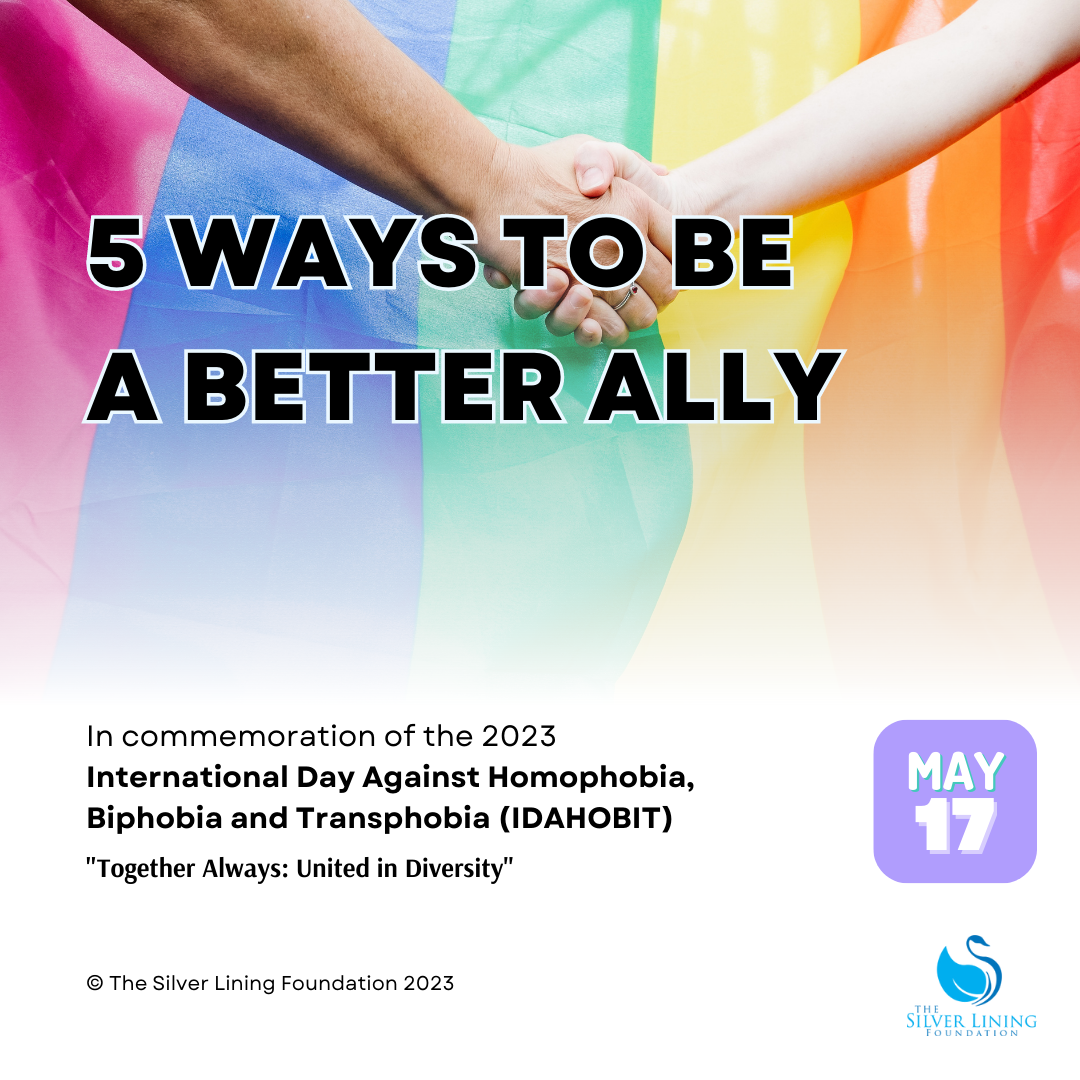5 Ways to Becoming a Better Ally

“Allyship” refers to the actions, behaviours and practices that people can take to support, amplify and advocate with others who don’t belong to the same social identity groups as themselves.
Allyship is not a single action, but rather an ongoing one, and is especially important since it is an open showing of support and advocacy for equal treatment. Allies are powerful and important to the push for equality, uniquely poised as persons in a position to use their voices to create a safer and more welcoming environment for everyone.
Here are five (5) ways on how to be a better ally:
- Learn About LGBTQIA+ Identities: The LGBTQIA+ community is rich in diversity! Educate yourself on LGBTQIA+ history and issues. Making time to learn about other identities or communities and the challenges they encounter will increase your capacity for empathy. Even among those of us who share the same identity, understanding the differences in these experiences prepares you to engage in allyship from an honest and genuine place. <br/>
- Use Correct Pronouns & Inclusive Language: Learn about terminology that’s inclusive of LGBTQIA+ people. Most of all, use them! Be mindful of how your actions may affect the community, especially the people you may love. Avoid assumptions of someone’s identity by using gender-neutral language.
- Use Your Voice: Speak up, but not over. Use your voice to encourage healthy, positive discourse around LGBTQIA+ issues in a way that does not speak over the community. Stand up for LGBTQIA+ people and speak up when you see discrimination occur, even if the person may not be around. This signals to others that you are someone who loves and supports people and advocates with rather than for them.
- Actively Listen: Be open-minded! Recognize that everyone – including ourselves and our loved ones – holds biases and has different stories or experiences. Even if they may be difficult to hear sometimes, open your hearts and minds to hearing and understanding the experiences of your LGBTQIA+ friends, family and peers. Actively listening also gives you an opportunity to learn something you may not have ever known before.
- Support Equality: Get comfortable with being uncomfortable. Realise that you will make mistakes in your advocacy journey; you may not always get it right. Be genuinely apologetic if or when you make them. Commit to finding the answer when you don’t know something and to changing your behaviour to prevent recurrences. Use those mistakes as teachable moments to grow and move forward.
Saying you’re an ally is not enough – you should show up and support others through action. Think of the ways you can build LGBTQIA+ inclusion in your everyday life. LGBTQIA+ people can oftentimes assume that a space may not be safe or inclusive until shown otherwise. Drape a rainbow flag, share your pronouns on social media and in person and reshare LGBTQIA+ content. Open showings of support signals to others that you are an ally and that the space is safe. You may even make others feel comfortable being visible allies too.

